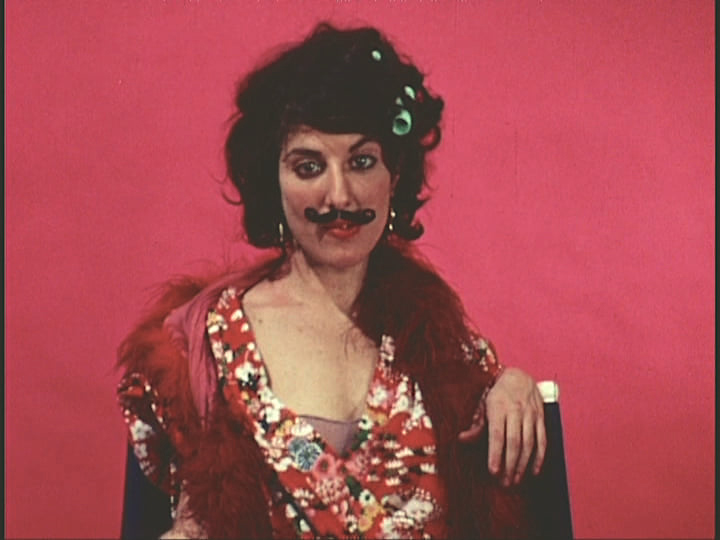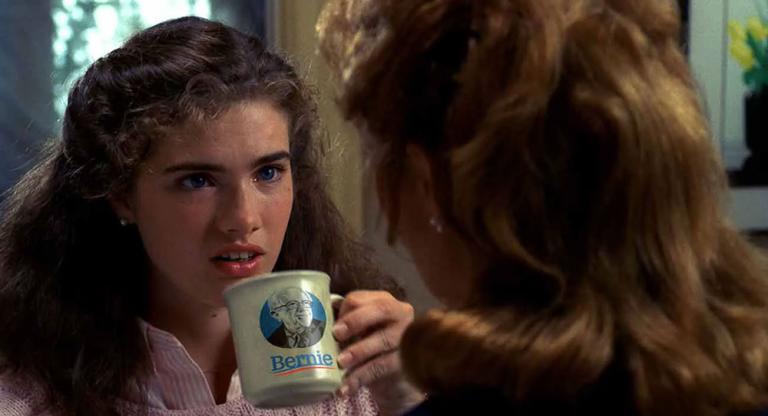Chick Strand’s Waterfall (1968) celebrates movement. In the experimental short, which is barely over three-minutes long, Strand alters found and stock footage with hand-processing, solarization, and contact-printing techniques. Alongside a soundtrack of Japanese Koto music that sounds like a cascade of sharp raindrops, sequences of ice skating and synchronized swimming tumble into each other; Strand’s manipulations make them appear metallic and fleeting, like quicksilver. It’s not just the film’s found footage that brings to mind the musical numbers of Busby Berkeley and Esther Williams’s water ballets, but also its graceful rhythm and graphic visual patterns. Strand’s use of image negatives transforms the footage’s sprightly bodies into pure shape and motion—a potent perspectival shift.
Waterfall is one of the eleven films in “The Women of Canyon Cinema,” a screening at The Roxie Theater that’s co-presented by the City College of San Francisco’s Women & Gender Studies and Cinema Departments. In the 1960s, Strand helped establish Canyon Cinema as a Bay Area screening series and film publication before it morphed into one the most significant distributors of experimental and artist-made films in the United States.
Denah Johnston, the screening’s programmer and a former director at Canyon Cinema, referred to Strand as a “mother figure.” She told me over email that it was important for her to exhibit women who worked within the organization. Thus, the program includes filmmakers like Edith Kramer, who ran the Canyon Cinema office, as well as Dorothy Wiley, Gunvor Nelson, and Janis Lipzin, all of whom sat on the organization’s Board of Directors, and, of course, Strand. Johnston also looked to artists from the ‘60s and ‘70s who were exploring themes that are “still hot topics” today, such as “the exclusion of women in the art/film world, erotic possibilities of independent filmmaking and societal obsession with cleanliness and purity,” as well as “second wave” filmmakers, like Julie Murray and Naomi Uman, whose work has been in the Canyon Cinema collection since the ‘80s and ‘90s, respectively. “Ultimately I wanted to put together a program that spans time and content matter, beyond gendered stereotypes and preconceived notions of ‘making’,” Johnston said.
Inclusion and exclusion are the sensitive buttons that every women-only exhibition pushes, or at least hovers over. This is poignantly at the heart of Alexis Krasilovsky's Guerrilla Commercial (1973), one of the many powerfully humorous films in the program. Costumed simultaneously as a man (fake mustache on), housewife (hair in curlers), and whore (feather boa on, decolletage out), Kraslovsky touts a women’s film festival at the Whitney Museum that’s being run exclusively by men. Her cheeky advertisement is intercut with footage of dollar bills raining from the sky and a man masturbating in a mirror, presumably from a hardcore film. It’s a resonant companion to Uman’s Removed (1999), in which the female figures in Bettkarriere (1972)—an English-dubbed West German porno—are whited-out with bleach and nail polish remover. With its use of direct animation, Removed boasts one of the most dramatic hands-on manipulations of filmic material in the screening. In its most literal reading, it echoes the sentiment of Kraslovsky’s film from decades before, giving form to the questions about who is and isn’t being seen.
Women of Canyon Cinema screens this evening, April 22, at the Roxie. The screening will be followed by a post-screening discussion with Denah Johnston in conversation with Steve Anker, Antonella Bonfanti, Maia Cybelle Carpenter, Janis Crystal Lipzin, and Amy Reid.





